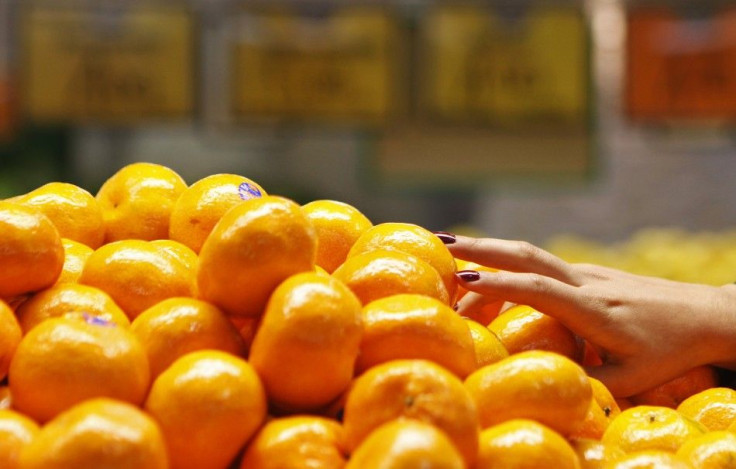Vitamin C Could Potentially Kill Colorectal Cancer Cells

A number of studies in the past have associated vitamin C with a number of health benefits, including protection against cardiovascular diseases and wrinkles. Now, a new study suggests that high dosage of naturally occurring vitamin C can help fight mutant forms of colorectal cancer.
Vitamin C is naturally found in a range of food items, including oranges, broccoli and peppers. A study conducted by researchers at the Lewis Cantley of Weill Cornel Medicine in New York suggested that the vitamin, when consumed in high amounts, has a certain effect on mutant colorectal cancer cells that ultimately leads to its elimination from the body.
During the study, the researchers exposed the colorectal cancer cells with BRAF and KRAS gene mutations to high levels of vitamin C in the plasma. KRAS and BRAF mutations in the genes are linked to cell growth.
The researchers found that the mutated colorectal cancer cells absorbed the vitamin's oxidized form through its overexpressed receptor. The mutated cells, in turn, underwent oxidative stress as a result of the absorption. The oxidative stress turned off the enzyme required by the mutated cancer cells to reproduce. The study was conducted on mice.
The researchers noted that the oxidative stress resulted in inactivation of the enzyme required by the mutated cells and not the normal cells. Since over half of the colorectal cancer cases in humans are linked to mutations in the KRAS and BRAF genes, the researchers believe that their study findings call for more research into the therapeutic use of vitamin C for colorectal cancer cases.
"High-dose vitamin C impaired tumor growth in Apc/KrasG12D mutant mice," the researchers wrote in their study published in the journal Science. "These results provide a mechanistic rationale for exploring the therapeutic use of vitamin C for CRCs with KRAS or BRAF mutations."
© Copyright IBTimes 2025. All rights reserved.



















